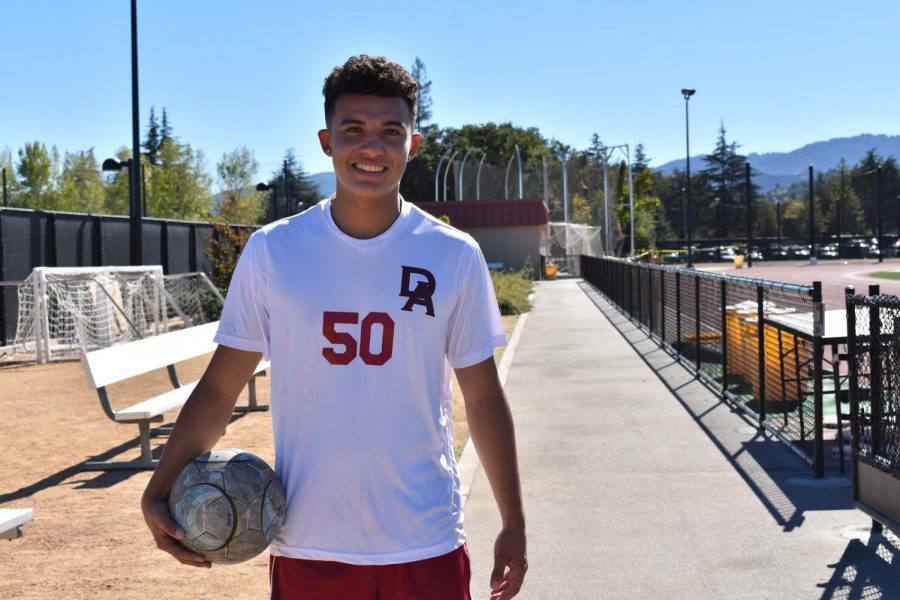De Anza athletes, coaches share diet secrets
Christian Mendoza, a right back for De Anza’s men’s soccer team, practices for the Dons’ upcoming game on Nov. 7 at 2 p.m. He says eating fruit helps him feel light on game day.
One thing is certain: the athletes at De Anza College are serious about their sports.
Ranging from high-protein to high-carbohydrate diets, De Anza’s athletes put in quite the effort to maintain superior athletic performance.
Cross country coach Nick Mattis has mentored students for 11 years at De Anza, and has helped athletes with their diets over the years.
“A big issue I see [is] iron deficiencies in female athletes, often because female athletes typically do not eat red meats,” Mattis said.
Students tend to eat chicken because it is lean, but it does not provide high supplements of iron and minerals like red meats do.
I
f an athlete is consistently slow or taking a long time to recover from workouts, the cause is often anemic responses from iron deficiencies.
Student athletes on campus have similar stances on diet choices, all from a range of sports: basketball, women’s soccer, men’s soccer, cheerleading, and baseball.
6 in 8 interviewed student athletes prioritize lean protein in their diet. However, only one of the eight prioritized red meat in their diet. All eight students were not vegan or vegetarian.
But all eight athletes prioritize grains and fruit in the morning.
“[Maintain] a balanced diet. Don’t limit yourself to one item on the food pyramid,” said Valerie Rodriguez, 20, early child education major and cheerleading co-captain.
Rodriguez adds that eating too many processed sugars makes members of her team feel lethargic during game days.
“The day of a game, I eat lots of fruit to feel as light as possible,” said Christian Mendoza, 19, kinesiology major and a right back men’s soccer player. He states how he prepares for a game by eating lots of carbohydrates a day before a game.
For student-athletes, a lot of thought goes into maintaining high energy to perform at a great level.



